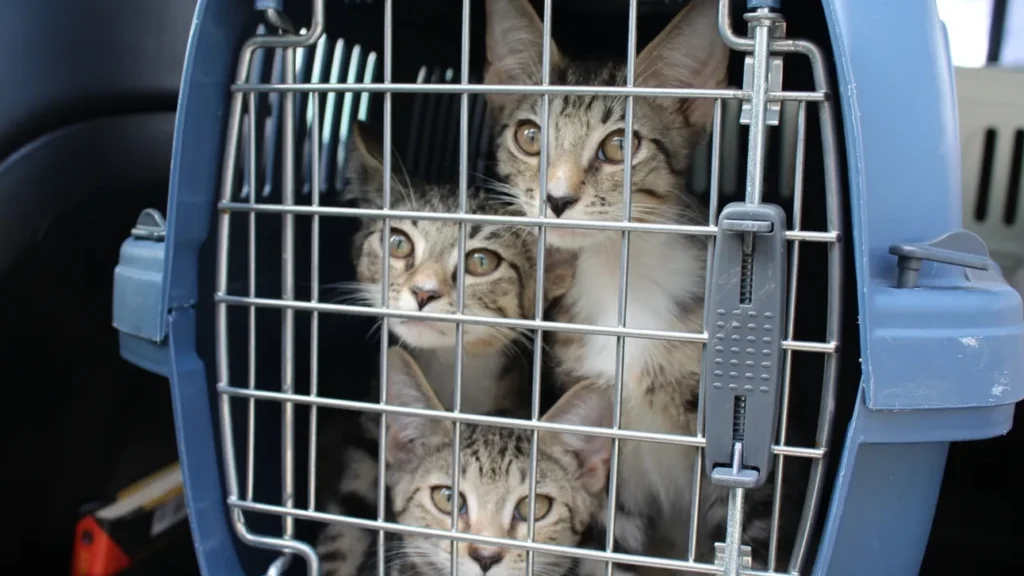California Governor Newsom Signs Legislation to Protect Animal Welfare

SACRAMENTO – Governor Gavin Newsom today announced that he has signed several measures to advance animal welfare in California, including SB 879 by Senator Scott Wiener (D-San Francisco), which ends unnecessary toxicological testing on dogs and cats.
“Animal testing that has no scientific value and causes terrible pain and suffering is inhumane, unnecessary, and cruel,” said Senator Scott Wiener. “The PET Act protects cats and dogs from this type of testing, and helps these animals live long, healthy lives. Thank you, Governor Newsom, for standing up for animals.”
The Governor stated, “For many families, including my own, pets are beloved companions that enrich our lives every day. I’m proud to sign this legislation to advance our state’s leadership on animal welfare by ending cruel and unnecessary testing on dogs and cats, among other measures to protect the health and safety of pets in California.”
SB 879, the PET (Prohibiting Extraneous Testing) Act prohibits toxicity testing on dogs and cats for pesticides, chemical substances and other products, which often does not advance scientific research on toxicity in humans. The bill includes exemptions for tests related to products intended for use in dogs or cats, including medical treatments. SB 879 does not impact federally required testing.
“As we celebrate California becoming the first state in the nation to prohibit certain testing on dogs and cats, we extend our gratitude to Governor Newsom for signing The PET Act, SB 879, into law,” said Kitty Block, President and CEO of the Humane Society of the United States. “Passing this bill shows California’s dedication to protecting animals from a life of suffering and isolation for the sake of unreliable tests. We appreciate Senator Wiener’s leadership on SB 879 and remain committed to ending all harmful toxicology testing on animals.”
Governor Newsom also signed several additional animal welfare measures. AB 1648 by Assemblymember Brian Maienschein (D-San Diego), which requires kennel owners to create a natural disaster evacuation plan as one of the conditions for obtaining a kennel license or permit. AB 1290 by Assemblymember Alex Lee (D-San Jose) clarifies that stealing or taking someone else’s companion animal is theft. SB 774 by Senator Robert Hertzberg (D-Van Nuys) to facilitate the emotional support dog certification process for homeless individuals. AB 2723 by Assemblymember Chris Holden (D-Pasadena) expands microchip registration requirements for dogs and cats to support the return of lost pets to their owners and deter theft.
Since taking office, Governor Newsom has signed several measures into law aimed at protecting companion animals and reducing pet homelessness.
The 2021-22 and 2020-21 state budgets included a total $50 million investment for a statewide Animal Shelter Assistance Program administered by UC Davis to give the state’s animal shelters the training and resources they need to work toward the state’s no-kill goal.
In 2020, coinciding with National Puppy Mill Awareness Day, Newsom signed two bills crafted to protect animal welfare in California. AB 2152 by then Assemblymember and now San Diego Mayor Todd Gloria officially ended the retail sale of dogs, cats, and rabbits in California by closing a loophole in current law, while still allowing pet stores to partner with shelters and rescue organizations to showcase animals for adoption. The legislation built on AB 458, California’s landmark law, proposed by Assemblymember Patrick O’Donell (D–Long Beach) and signed by Governor Jerry Brown in 2017, that banned the sale of dogs, cats and rabbits in pet stores, unless supplied by shelters or rescue organizations. SB 573 by then Senator Ling Ling Chang (R-Diamond Bar) requiring shelters and animal control agencies to microchip all dogs and cats with current information before releasing them to adoptive owners or an owner seeking to reclaim them.




Responses